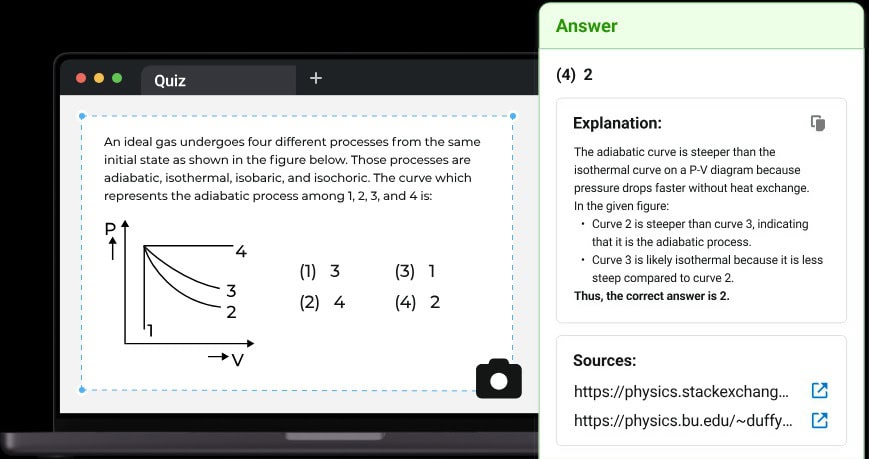You can’t see love, but you’ll post about it.
You can’t touch anxiety, but it touched you first.
And don’t get started on the drama. It’s everywhere, but also nowhere.
Welcome to the wild world of abstract nouns, where feelings have names and concepts run the show.
These invisible forces shape our conversations, fuel our Instagram captions, and somehow make perfect sense even when they exist purely in our heads.
If you’ve ever wondered why English feels like it’s playing mind games with you, abstract nouns are probably part of the conspiracy.
They’re the reason you can discuss happiness without pointing to a happy object, or why you can complain about stress without anyone asking where you keep it.
Today, we’ll geek out about abstract nouns and recognize how they capture intangible stuff that makes us human.
Key Takeaways
- Abstract nouns describe ideas, emotions, qualities, and states you can’t physically sense. They exist in thought, not touch.
- Many abstract nouns are formed by adding suffixes like -tion, -ness, -ity, or -ment to verbs or adjectives.
- They show up in everyday language and often feel tangible, even though they’re not.
- Abstract nouns need verbs and descriptions that match their intangible vibe to sound natural in writing.
- Tools like Undetectable AI’s Ask AI help you identify abstract nouns and refine your usage with real-time feedback.
What Are Abstract Nouns? (Definition)
Abstract nouns are words that name things you can’t experience through your five senses.
Unlike your usual adjectives, they represent ideas, emotions, qualities, concepts, and states of being that exist in your mind rather than in the physical world.
Think of them as the invisible players in language.


Never Worry About AI Detecting Your Texts Again. Undetectable AI Can Help You:
- Make your AI assisted writing appear human-like.
- Bypass all major AI detection tools with just one click.
- Use AI safely and confidently in school and work.
While you can see a dog, smell coffee, or touch a book, you can’t physically interact with courage, freedom, or jealousy.
These concepts are real and meaningful, but they live in the realm of thoughts and feelings rather than the material world.
Abstract nouns cover a massive range of human experiences.
They include emotions like anger and joy, qualities like beauty and strength, concepts like democracy and justice, and states of being like childhood and loneliness.
Basically, if you can think about it but can’t put it in a box, there’s probably an abstract noun for it.
The tricky part is that abstract nouns feel concrete when we use them.
We talk about “having patience” or “losing hope” as if these things were physical objects we could misplace.
Language makes the abstract feel tangible, which is pretty cool when you think about it.
Abstract Noun Examples
Let’s look at some examples that show up in everyday conversation:
- Emotions: Happiness, sadness, anger, excitement, fear, love, hatred, surprise, disgust, contempt
- Qualities: Beauty, ugliness, strength, weakness, intelligence, stupidity, kindness, cruelty, honesty, dishonesty
- Concepts: Freedom, justice, democracy, capitalism, socialism, religion, science, art, music, literature
- States of being: Childhood, adulthood, friendship, leadership, membership, citizenship, partnership
- Mental processes: Thought, memory, imagination, creativity, reasoning, understanding, confusion, clarity
Notice how these words describe things that exist but can’t be touched, seen, heard, smelled, or tasted.
You might see the effects of these concepts, but the concepts themselves are invisible.
Abstract Nouns vs Concrete Nouns

The difference between abstract and concrete nouns is pretty straightforward.
Concrete nouns name things you can experience with your senses, while abstract nouns name things that exist only in your mind.
Concrete nouns are the physical world around you. Your phone, your coffee mug, your pet, your neighbor’s loud music.
These things take up space, have weight, and can be detected by your senses. You can drop them, photograph them, or point them out to someone else.
Abstract nouns represent the invisible stuff that makes life interesting.
Your opinion about that coffee, your relationship with your pet, and your annoyance at the neighbor’s music.
These things are real parts of your experience, but they don’t have a physical form.
Sometimes the line gets blurry. Take “music” for example. You can hear music, so it seems concrete.
But music as a concept, as an art form, as something that exists beyond any specific song, becomes abstract.
Context matters.
The same word can even function as both types depending on how it’s used.
“Love” is typically abstract, but in tennis, “love” means zero, which is more concrete. English loves to keep us on our toes like that.
Understanding this distinction helps you write more precisely.
When you know whether you’re dealing with concrete or abstract nouns, you can choose verbs and adjectives that match.
You wouldn’t say “I grabbed some happiness” the same way you’d say “I grabbed some pizza.”
How to Identify an Abstract Noun
Spotting abstract nouns gets easier once you know what to look for.
Here are some reliable strategies that work most of the time.
- The five senses test is your best friend. Ask yourself if you can see, hear, touch, smell, or taste the noun. If the answer is no to all five, you’re probably dealing with an abstract noun. You can’t taste democracy or smell intelligence, so those qualify.
- Look for emotion words. Feelings and emotions are almost always abstract. Joy, sadness, anger, fear, love, hatred, and their cousins all fall into this category. Even complex emotions like nostalgia or schadenfreude count.
- Check for quality words. Characteristics and qualities that describe people, places, or things are typically abstract. Beauty, strength, intelligence, courage, honesty, and similar terms name qualities rather than physical objects.
- Spot concept words. Big ideas, philosophies, systems, and theories are abstract. Freedom, justice, capitalism, democracy, religion, and science all represent complex concepts that exist in our minds and societies.
- Notice suffix patterns. Many abstract nouns end in specific suffixes:
- -tion (creation, education)
- -ness (happiness, sadness)
- -ity (creativity, reality)-ism (capitalism, idealism)
- -ment (excitement, movement)
- -ance/-ence (importance, presence).
The suffix trick isn’t foolproof though. “Basement” ends in -ment, but it’s definitely concrete. “Lioness” ends in -ness, but lions are concrete. Use suffixes as clues, not absolute rules.

Want to practice identifying abstract nouns in real sentences?
Try using Undetectable AI’s Ask AI tool for interactive grammar help.
It can analyze your sentences and explain which nouns are abstract, giving you instant feedback to improve your noun identification skills.
Using Abstract Nouns in Sentences
Abstract nouns work just like regular nouns in sentences. They can be subjects, objects, or complements.
The main difference is that they often need different types of verbs and descriptions.
- As subjects:
- “Happiness fills the room.”
- “Courage drives her decisions.”
- “Democracy requires participation.”
Abstract nouns can definitely be the main actor in your sentence.
- As direct objects:
- “She values honesty.”
- “They discussed freedom.”
- “He lost his patience.”
You can do things to abstract nouns, even if those things aren’t physical.
- As objects of prepositions:
- “In times of crisis, we need leadership.”
- “She spoke with passion.”
- “They fought for justice.”
Abstract nouns work perfectly in prepositional phrases.
- With specific verbs: Abstract nouns often pair with particular verbs. You “feel” emotions, “have” qualities, “believe in” concepts, and “experience” states of being.
These verb choices make abstract nouns feel more concrete in sentences.
- With descriptive language: Abstract nouns love adjectives:
- “Pure joy”
- “Blind faith”
- “Deep love”
- “Bitter disappointment.”
These combinations help readers understand the intensity or type of abstract concept you’re describing.
- In metaphorical expressions: Abstract nouns shine in figurative language:
- “Time is money”
- “Love is a battlefield”
- “Knowledge is power”
These expressions use abstract nouns to create vivid mental pictures.
The key is matching your language choices to the abstract nature of these nouns.
You wouldn’t say “I threw my anger across the room” unless you’re being deliberately metaphorical. Instead, you might say, “I expressed my anger” or “My anger grew.”
How Abstract Nouns Are Formed

No, abstract nouns didn’t just appear in a puff of existential smoke.
Most of them were built, not born, crafted by taking regular words (like verbs or adjectives) and giving them a makeover with suffixes.
Think of suffixes as the “-core” of language. You start with a base word, and then slap on an ending to give it abstract energy. Here’s how it works in the wild:
Verb → Abstract Noun:
decide → decision
grow → growth
fail → failure
Adjective → Abstract Noun:
happy → happiness
strong → strength
curious → curiosity
You’ll notice the pattern: throw on -ness, -ity, -tion, -ment, or -ure, and boom, your word becomes less about doing and more about being.
It’s the linguistic equivalent of turning action into vibes. You’re not running anymore. You’re talking about movement. You’re not feeling brave. You’re talking about bravery.
Want to spot these faster? Look for:
- Words ending in -ity (creativity, sincerity)
- -tion or -sion endings (emotion, confusion)
- -ment endings (achievement, enjoyment)
- And the classic -ness (kindness, weirdness, hotness — yes, it counts)
Once you see it, you can’t unsee it. It’s suffix city out here.
Common Mistakes With Abstract Nouns
Abstract nouns trip people up more than you might expect.
Here are the most common mistakes and how to avoid them.
- Treating them like concrete nouns: The biggest mistake is trying to use abstract nouns as if they were physical objects. Unlike action verbs, which bring motion and clarity, abstract nouns rely more on context and tone to land. You can’t “grab some happiness” or “put justice in your pocket.” Abstract nouns need verbs and descriptions that match their intangible nature.
- Overusing them in writing: Abstract nouns can make writing feel vague and philosophical when you need to be specific and concrete. Instead of saying “There was a lot of negativity,” try “Three people complained loudly.” Concrete details often communicate better than abstract concepts.
- Mixing up similar concepts: Words like “affect” and “effect,” “advice” and “advise” cause confusion because they sound similar but work differently. “Advice” is an abstract noun (you can give advice), while “advise” is a verb (you can advise someone).
- Capitalization confusion: Abstract nouns follow regular capitalization rules. Don’t capitalize them unless they start a sentence or are part of a proper noun. “Justice” is lowercase, but “Department of Justice” capitalizes it as part of an official name.
- Pluralization problems: Some abstract nouns can be plural, others can’t. You can have “several experiences” but not “several happinesses.” When in doubt, check if the plural form makes logical sense.
- Article usage: Abstract nouns often work without articles. You talk about “love” in general, not “the love” or “a love.” But sometimes articles are needed: “a love of music” or “the happiness we shared.” Context determines article usage.
- Pronoun reference: Abstract nouns can create unclear pronoun references. “Happiness and joy filled the room. It was wonderful.” What does “it” refer to? The happiness, the joy, or the situation? Be specific with pronouns.
The solution to most abstract noun mistakes is awareness.
Once you recognize that you’re dealing with an abstract concept, you can choose language that matches its intangible nature.
Want to see our AI Detector and Humanizer in action? Check them out in the widget below!
FAQs
Is love an abstract noun?
Yes, love is definitely an abstract noun. You can’t see, touch, hear, smell, or taste love itself, even though you can observe its effects.
Love represents an emotion and concept that exists in minds and hearts rather than as a physical object.
When people say “I can feel love,” they’re describing an emotional experience, not a physical sensation like touching a table.
Are abstract nouns capitalized?
Abstract nouns follow standard capitalization rules.
They’re lowercase unless they start a sentence or are part of a proper noun.
You’d write “justice” in lowercase, but “Department of Justice” capitalizes it as part of an official name.
“Democracy” stays lowercase in most contexts, but “Democratic Party” capitalizes it as part of a proper noun.
Can abstract nouns be plural?
Some abstract nouns can be plural, but not all.
It depends on whether the concept can logically exist in multiple forms. You can have “experiences,” “emotions,” “thoughts,” and “ideas” because these concepts can exist separately.
But you can’t have “happinesses” or “angers” because these emotions don’t typically divide into countable units.
When in doubt, consider whether the plural form makes logical sense.
What’s the difference between abstract and collective nouns?
Abstract nouns name intangible concepts, while collective nouns name groups of concrete things.
“Team” is collective because it refers to a group of people (who are concrete).
“Teamwork” is abstract because it refers to the concept of working together (which is intangible).
“Family” is collective (a group of people), while “love” is abstract (an emotion). Some words can be both, depending on context.
You Can’t Hold Love, But You Can Spell It Right
Abstract nouns are the invisible backbone of meaningful communication.
They let us discuss emotions, share ideas, debate concepts, and explore the intangible aspects of human experience that make life interesting.
Understanding abstract nouns isn’t just about grammar rules.
It’s about recognizing how language captures the full spectrum of human experience, from concrete objects to complex emotions and philosophical concepts.
When you can identify and use abstract nouns effectively, you unlock more precise and nuanced communication.
The next time you’re writing or speaking, pay attention to the abstract nouns you choose.
They reveal what you value, what you think about, and how you understand the world. They’re the reason you can have a conversation about happiness without pointing to a happy object.
If you’re not sure, drop your paragraph into Undetectable AI’s Ask AI tool.
It’ll point out where you’re nailing it, and where you’re just vibing with no clarity. Real-time feedback, zero stress.
Master abstract nouns, and you’ll master a crucial part of English that makes the language rich, flexible, and deeply human.
After all, what would communication be without the ability to discuss love, justice, creativity, and all the other invisible forces that shape our lives?
Want help refining your abstract ideas into clear, human writing? Try Undetectable AI today.
